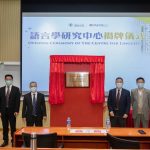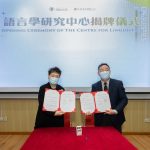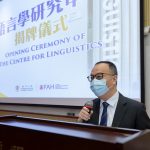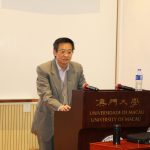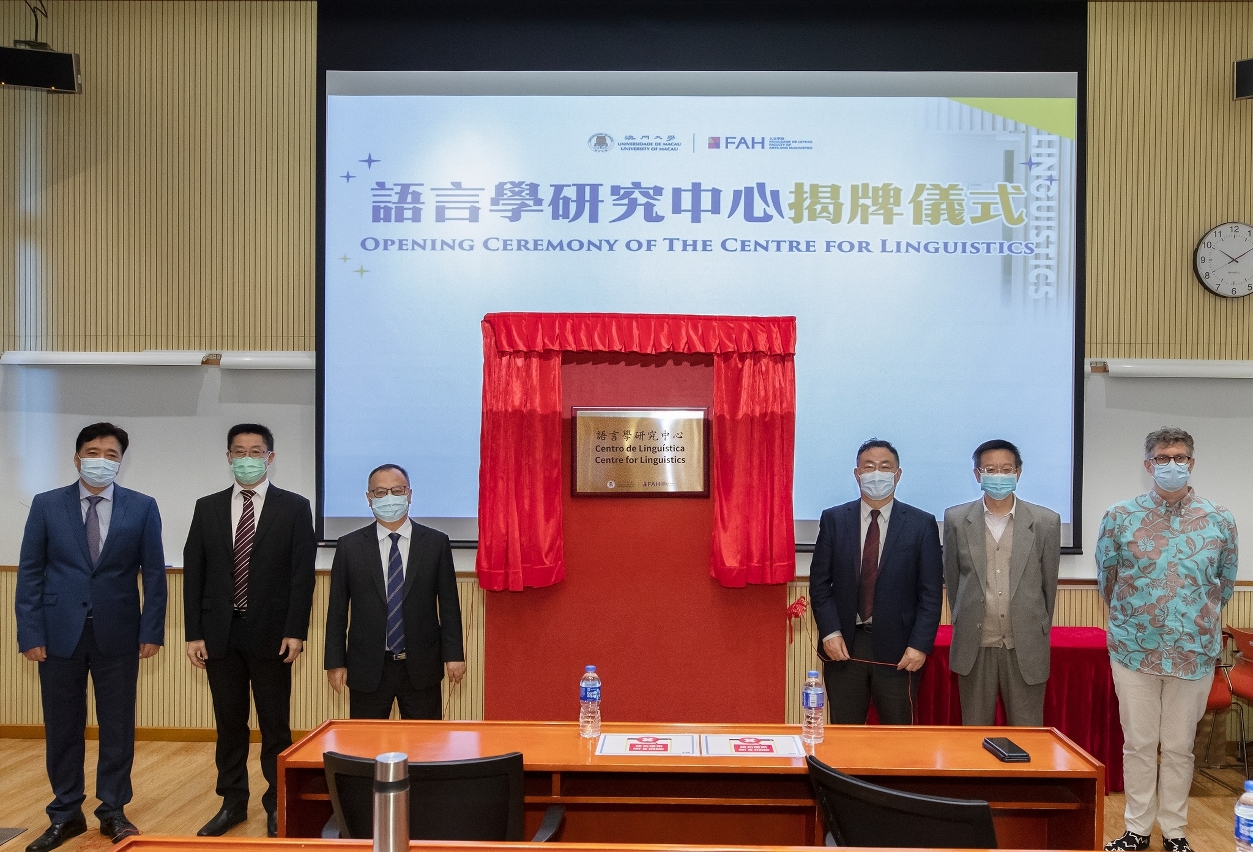 UM holds a plaque unveiling ceremony for the Centre for Linguistics
UM holds a plaque unveiling ceremony for the Centre for Linguistics
The University of Macau (UM) recently held a plaque unveiling ceremony for the Centre for Linguistics. The establishment of the centre marks the university’s efforts to promote research studies across different language disciplines and its contributions to the development of linguistics in Macao. After the ceremony, representatives of UM’s Faculty of Arts and Humanities (FAH) and the Macao Linguistics Society signed a collaboration agreement on the publication of the Macao Journal of Linguistics.
Yonghua Song, rector of UM; Xu Jie, dean of the FAH and director of the Centre for Linguistics; Li Defeng, associate dean of the FAH and director of the Centre for the Studies of Translation, Interpreting and Cognition; Wang Qingjie, associate dean of the FAH; Yuan Yulin, chair professor of the Department of Chinese Language and Literature; and Andrew Moody, associate director of the Centre for Linguistics and associate professor in the Department of English, officiated at the plaque unveiling ceremony. Attendees of the ceremony also included Victoria Lei and Joaquim Kuong, assistant deans of the FAH, as well as other UM Faculty members, students, and members of the academic circle.
In his speech, Rector Song outlined the background of the establishment of the centre and plans for its future development. According to him, linguistics is one of the strongest areas of research and publication at the UM, and one of the few academic disciplines of UM that is internationally ranked. There are many academic staff who work in the discipline of linguistics, but they are now scattered over several FAH departments — the Departments of Chinese Language and Literature, the Department of English, the Department of Portuguese and the Centre for Japanese Studies, as well as in other faculties. He added that the new centre would create a platform for uniting the UM linguists across the different departments, and as such would help to promote collaborations across different language disciplines through the organisation of academic conferences and the publication of academic books and journals.
After the ceremony, Prof Xu and Huang Yi, president of the Macao Linguistics Society, signed a collaboration agreement on the publication of the Macao Journal of Linguistics, which was founded in 1995. Over the past 20 years or so, with the joint efforts of various academics, most notably Prof Ching Cheung Fai, the journal has published a huge number of quality research papers that are impactful in the field of linguistics and has made a name for itself in the field. According to the agreement, the FAH will be in charge of the publication of this biannual journal, in collaboration with the Macao Linguistics Society.
On the same day, the newly established Centre for Linguistics held its first academic lecture, with Yuan Yulin, a new faculty member of UM, who is also a renowned linguist and a Chang Jiang Scholar, as the keynote speaker. He gave a lecture titled ‘Polarity in the Semantics of Adjectives and Relevant Syntactic Conditions’. Prof Yuan was formerly a faculty member at Peking University. He has been involved in research in theoretical linguistics and Chinese linguistics for a long time, and is currently a member of the Board of Directors of the Chinese Linguistics Society and an executive director of the Chinese Information Processing Society of China. He is also a member of the editorial boards of more than ten academic journals, including Contemporary Linguistics, Journal of Chinese Information Processing, and Chinese Linguistics (translated from its Japanese title ‘Chuugoku Gogaku’).


